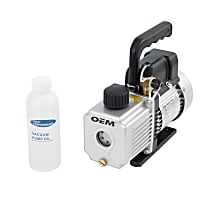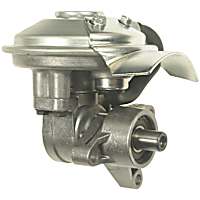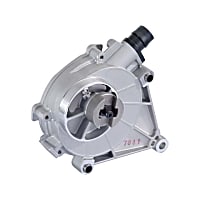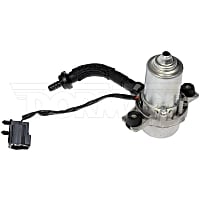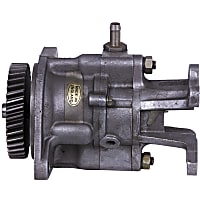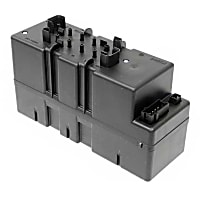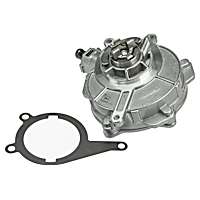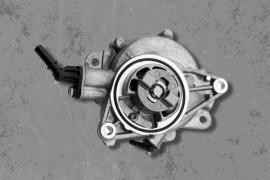{
"lazyNodes": false,
"abFitnotesFlag": false,
"abCrawlReviews": true,
"productOptionsCookie": false,
"orderDelayFlag": false,
"skipSessionCookie": false,
"covidMessage": false,
"fullTitleCookie": false,
"nrLoggerCookie": true,
"checkoutReviewCookie": false,
"productOptionSeqCookie": false,
"maintenanceFlag": false,
"bufferETACookie": false,
"multiShippingDiscountFlag": false,
"newFitmentFlag": false,
"surveyOptInFlag": true,
"crossSellFlag": false,
"skuMappingFlag": false,
"paySplitCookie": false,
"callDisableFlag": true,
"zipPaymentFlag": "c",
"hassleFreeReturn": true,
"lifetimeReplacement": true,
"cpn_off": false
}Vacuum Pumps
Shop Catalog
![]() WARNING: This product can expose you to chemical which is known to the State of California to cause cancer and birth defects or other reproductive harm. For more information go to www.P65Warnings.ca.gov.
WARNING: This product can expose you to chemical which is known to the State of California to cause cancer and birth defects or other reproductive harm. For more information go to www.P65Warnings.ca.gov.
![]() WARNING: This product can expose you to chemicals including Lead, which is known to the State of California to cause cancer and birth defects or other reproductive harm. For more information go to www.P65Warnings.ca.gov.
WARNING: This product can expose you to chemicals including Lead, which is known to the State of California to cause cancer and birth defects or other reproductive harm. For more information go to www.P65Warnings.ca.gov.
![]() WARNING: This product can expose you to chemical which is known to the State of California to cause cancer and birth defects or other reproductive harm. For more information go to www.P65Warnings.ca.gov.
WARNING: This product can expose you to chemical which is known to the State of California to cause cancer and birth defects or other reproductive harm. For more information go to www.P65Warnings.ca.gov.
![]() WARNING: This product can expose you to chemicals including Lead, which is known to the State of California to cause cancer and birth defects or other reproductive harm. For more information go to www.P65Warnings.ca.gov.
WARNING: This product can expose you to chemicals including Lead, which is known to the State of California to cause cancer and birth defects or other reproductive harm. For more information go to www.P65Warnings.ca.gov.
![]() WARNING: This product can expose you to chemical which is known to the State of California to cause cancer and birth defects or other reproductive harm. For more information go to www.P65Warnings.ca.gov.
WARNING: This product can expose you to chemical which is known to the State of California to cause cancer and birth defects or other reproductive harm. For more information go to www.P65Warnings.ca.gov.
Popular Products
Shopping for Vacuum Pump

Summary
- The vacuum pump is a mechanical or electrical device that does a couple of things to aid the engine, including the evacuation of the air from the brake booster.
- A vacuum pump generates a vacuum for the turbocharger control, secondary air valves, exhaust gas flaps, and exhaust gas recirculation (EGR) valves.
- The vacuum pump is usually mounted directly on the cylinder head. A mechanical pump is supplied with lubricating oil and is driven by the engine.
- Vacuum pumps suck the air from the engine to reduce the air pressure that’s building up due to combustion “blow off.”
- The vacuum generated by the vacuum pump is used to regulate emission levels, operate HVAC controls, control timing advance, and aid power brake assist.
- There have been reported claims of a hard brake pedal, difficulty bringing the vehicle to a stop, climate control issues, rough idle, and lack of acceleration power due to a malfunctioning vacuum pump.
- A failing vacuum pump can easily be mistaken for other failing components. To avoid replacing the wrong part, you have to know how to properly diagnose a failing vacuum pump.
- One of the common mistakes committed by car owners is not replacing the old vacuum pump after serious engine damage.
- Aftermarket vacuum pumps on CarParts.com may cost you anywhere between $37 and $723.
When it comes to vacuum pumps, there’s a wide area for discussions. There are vacuum pumps used in cleaning the car’s air conditioning system and are referred to as car AC vacuum pumps, while there are vacuum pumps for oil change. In automotive applications, the term vacuum pump refers to the device that’s mounted on the intake manifold area of the engine.
If you’re having trouble with your vacuum pump, this guide will help you with the important things. Get up close and personal with everything about your engine’s vacuum pump, including its common problems, how failure is detected, and more.
What Is a Vacuum Pump in a Car?
The vacuum pump is a mechanical or electrical device that does a couple of things to aid the engine, including the evacuation of the air from the brake booster. It also generates vacuum for the turbocharger control, secondary air valves, exhaust gas flaps, and exhaust gas recirculation (EGR) valves.
Mechanical vacuum pumps can be operated by the engine’s camshaft or the alternator shaft depending on the engine design. Electric vacuum pumps, on the other hand, are more efficient since they don’t source power from the engine.
What Does a Vacuum Pump Do?
The vacuum pump is usually mounted directly on the cylinder head. A mechanical pump is supplied with lubricating oil and is driven by the engine. It is often used in vehicles where the intake manifold can’t generate adequate vacua, such as those with direct-injection and turbo engines.
Vacuum pumps suck the air from the engine to reduce the air pressure that’s building up due to combustion “blow off.” A pump is able to generate a negative pressure of up to 12 psi by sucking the air out of the vacuum system. It works through positive displacements to direct air from the vacuum system and into the air intake system.
The vacuum generated by the vacuum pump is used to regulate emission levels, operate HVAC controls, control timing advance, and aid power brake assist. The benefits of a fully working vacuum pump include additional horsepower, preserved engine life, and cleaner engine oil.
Types of Vacuum Pumps
The earliest vehicle vacuum pumps feature a piston or diaphragm mechanism and are driven by the camshaft. Meanwhile, modern vehicles are equipped with vane pumps, which are usually mounted at the end of the camshaft and are lubricated with engine oil. Some vehicles have combined fuel and vacuum pumps called tandem vacuum fuel pumps.
In more advanced vehicles that have maximized engine power, the vacuum pump often comes in electrical form rather than a mechanical.
Common Problems You Can Face With the Vacuum Pump
Most vacuum pump problems are caused by equipment failure or specification issues. Problems include:
- Noisy pump operation
- Leakage
- Inconsistent vacuum output
- Vibration
- Lack of pumping capacity
- Overheating
- Damaged bearing/gear
- Low pump speed
- Oil loss
Symptoms of a Failing Vacuum Pump
There have been reported claims of a hard brake pedal, difficulty bringing the vehicle to a stop, climate control issues, rough idle, and lack of acceleration power due to a malfunctioning vacuum pump. These symptoms are often improperly diagnosed as other failing components can also cause them to happen. A proper diagnosis is needed to find out if the problems you’re facing are caused by a faulty vacuum pump.
Detecting a Failing Vacuum Pump
A failing vacuum pump can easily be mistaken for other failing components. To avoid replacing the wrong part, you have to know how to properly diagnose a failing vacuum pump. Most people test the pump’s condition by checking the hose for suction. This method has been proven to be unreliable and is not a good way of determining a failure.
Instead of checking the vacuum hose, the correct way to diagnose a vacuum pump is by checking it using a pressure gauge. There should be at least 8.8 psi and enough volume for the pump to generate the right vacuum levels to support vehicle functions. Any measurement below this means the pump is not doing what it is supposed to do.
Importance of Replacing the Vacuum Pump Following Engine Damage
One of the common mistakes committed by car owners is not replacing the old vacuum pump after serious engine damage. Most people don’t replace the vacuum pump after reconditioning or repairing the engine.
The important rule is that vacuum pumps need to be replaced following a recent engine reconditioning. This is because vacuum pumps are directly connected to the engine and are incorporated in the engine oil circuit. Engine damage may cause one or more of these to the vacuum pump:
- Chips infiltrating the vacuum pump along with the engine oil
- The vacuum pump may have been overheated, causing performance to drop
- Equipment damage inside or outside of the pump assembly
How Much Is a Vacuum Pump Replacement?
Aftermarket vacuum pumps on CarParts.com may cost you anywhere between $37 and $723 depending on the brand, series, and vehicle fit. It is recommended that you refer to your vehicle owner’s manual to know what vacuum pump your car uses before buying a replacement. Replacing the vacuum pump can be done in your garage, although it is advisable to have it replaced by a certified mechanic.
Finding the Right Fit
For easier search, you can indicate the year, make, and model of your vehicle to narrow down the list to all compatible vacuum pump replacements. Input the details in the filter tab under the search menu and hit “Go.” You can further narrow down your search according to your price range, brand, and series preference by utilizing the Refine By section.
What Is a Vacuum Pump?
The vacuum pump is a crucial component particularly in vehicles with a direct injection engine, turbo, or variable valve timing (VVT) engine. Vacuum pumps are used for a variety of reasons including emissions regulation, HVAC control, and as a backup actuator when the brake boosters fail.
How Much Does a Vacuum Pump Replacement Cost?
The cost of a vacuum pump replacement typically ranges from around $30 to around $600 for the part alone. The cost of the vacuum pump is affected by the brand of the part as well as the exact model of your vehicle. For labor, you can expect to pay around $100 to $150 for vacuum pump replacement depending on local labor rates in your location.
Shop for Aftermarket Vacuum Pumps on CarParts.com
A faulty vacuum pump can cause a wide range of problems, so it’s best to replace it as soon as it fails. The good news is that it’s easy to find a high-quality aftermarket vacuum pump when you shop here at CarParts.com. With our user-friendly website, it will only take you a few minutes to find a compatible vacuum pump for your vehicle.
To ensure your safety and satisfaction, we only source products from reputable car parts manufacturers. Our vacuum pumps come from trusted aftermarket car parts brands only.
Our vacuum pumps are manufactured in world-class facilities. They have also undergone a thorough quality testing process to ensure that they work just as well as the stock vacuum pump in your vehicle. They are also made from premium materials to ensure lasting performance.
To get started on finding a compatible vacuum pump for your vehicle, simply use our vehicle selector and enter your vehicle’s exact details. Shop for a high-quality vacuum pump replacement at CarParts.com now!
